
Bullet points are commonly used in presentation slides for listing down information. Some bullet points require further division in the form of sub-bullets. Learn how to easily add sub bullets in PowerPoint for all your presentations with this guide.
How to Add Sub-bullets in PowerPoint
We already covered how to add bullet points in PowerPoint, but if you want to go one level down then sub bullet points can be of help. You can create PowerPoint sub-bullets for your presentations and PowerPoint templates by increasing the number of indents. Similarly, the indent can be reduced to return the text to its original position or to adjust the sub-bullets. To get started, select the text and add bullets from the Bullets menu from the Home tab.
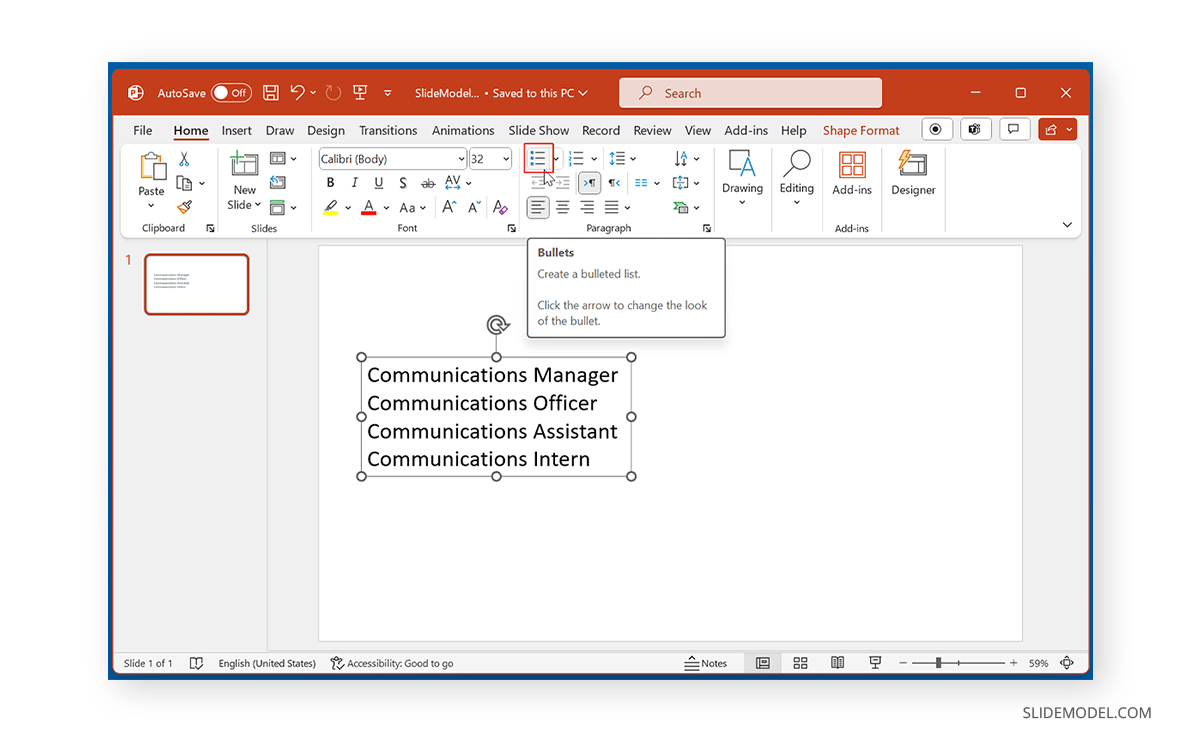
You can add the desired bullet type to the list, be it one type of bullet or a different ppt sub bullet for other points.
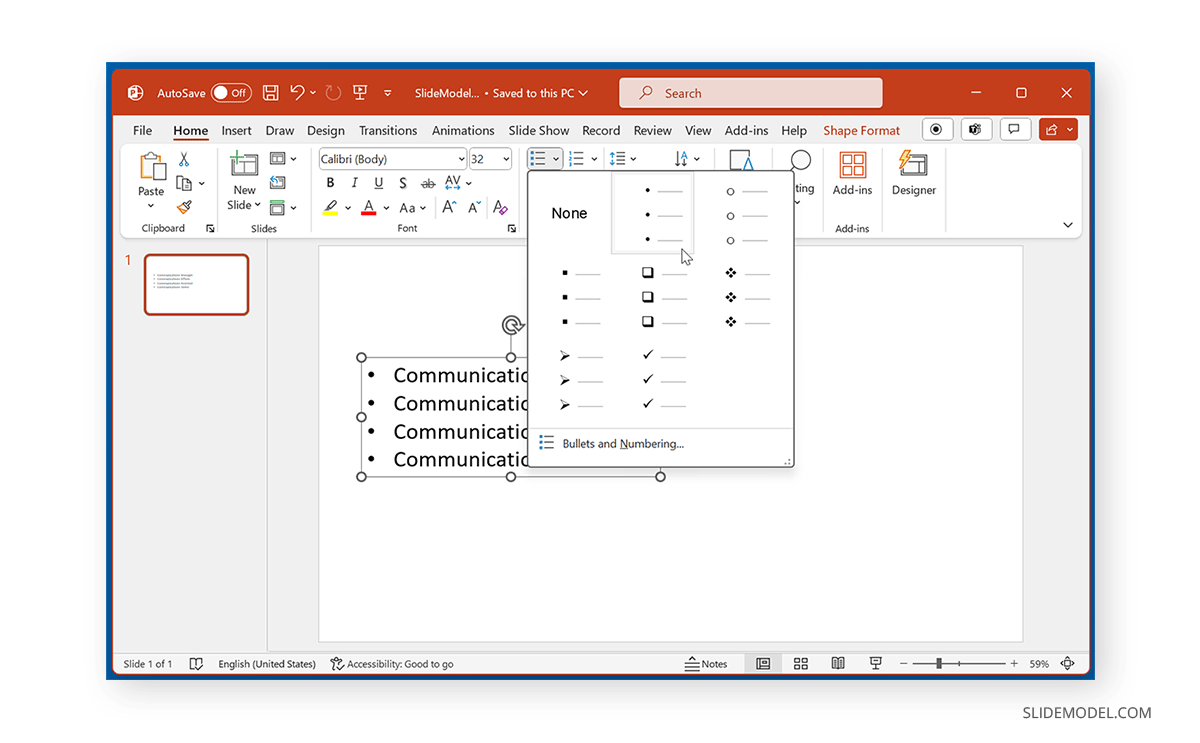
Method 1: Adjust Indent from Ribbon Menu
Select the text to create sub-bullets and click the increase indent from the Increase List Level button.
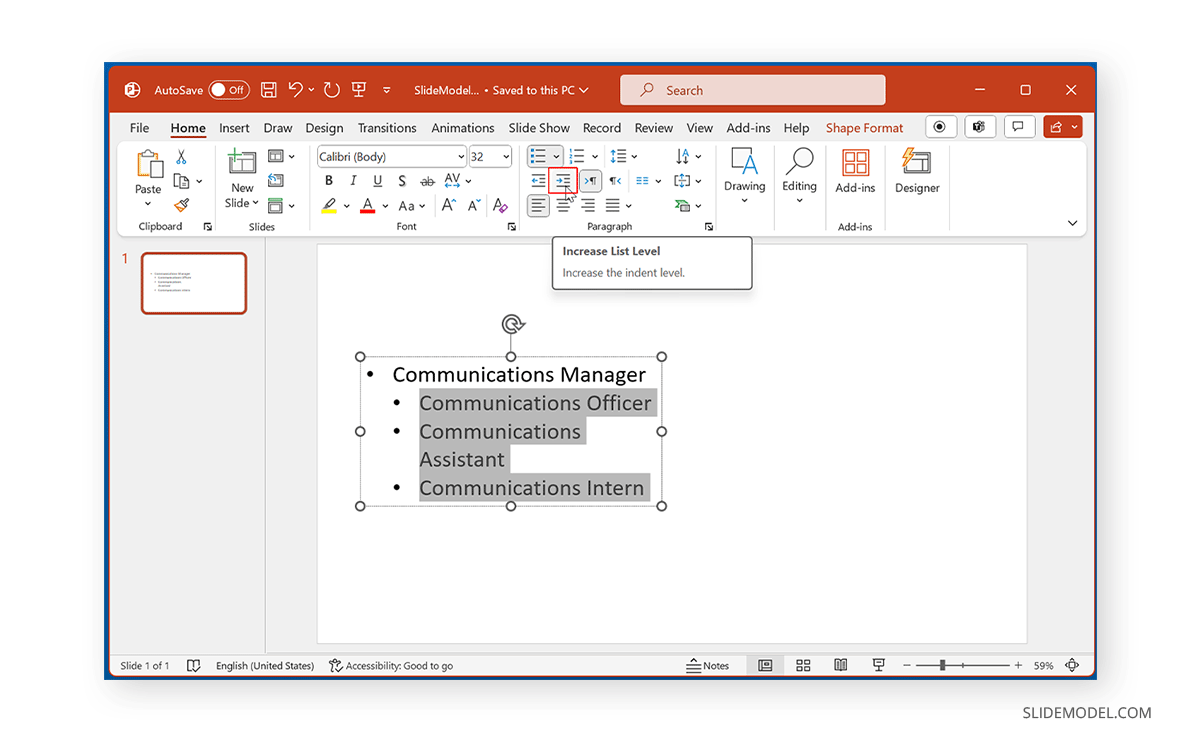
Method 2: Adjust the Indent using the Ruler
You can also adjust the indent from the Ruler by moving it across the slide to change specific lines of text. If you can’t see the ruler in PowerPoint, right-click on a slide and select Ruler.
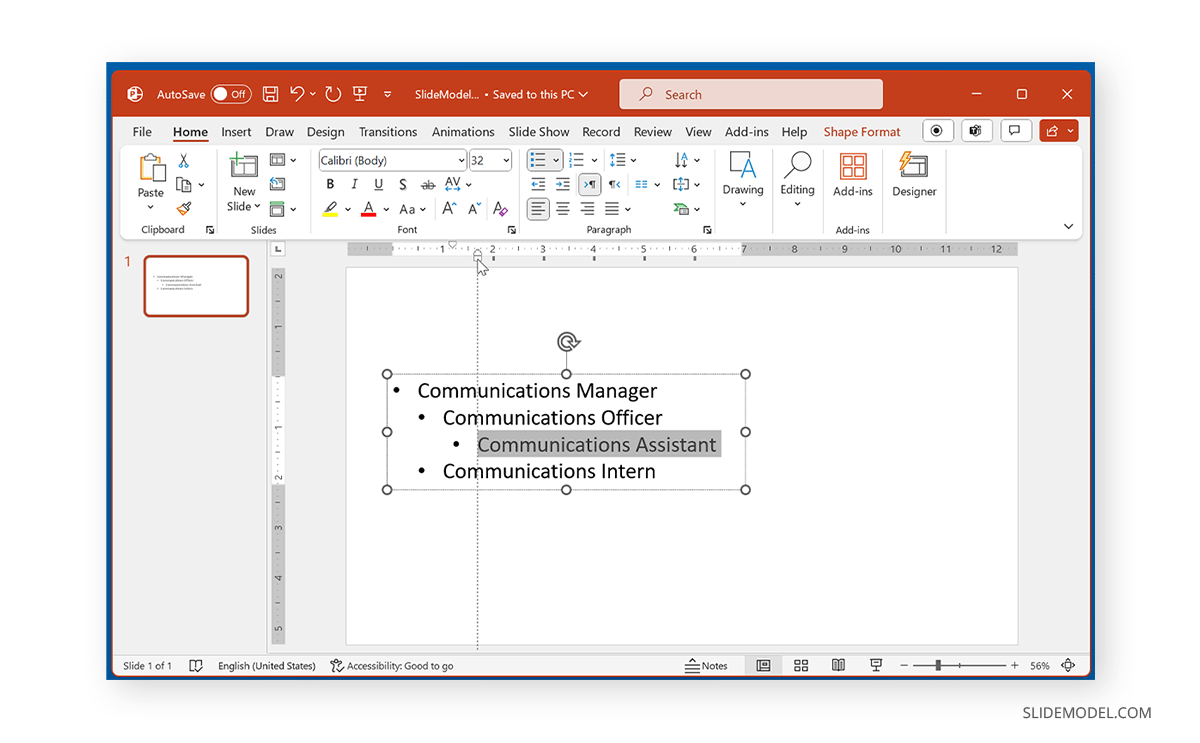
Method 3: Hotkeys to Increase or Decrease Indent
You can move the selected text to the right using the Tab hotkey. To move the text to the left, use SHIFT+Tab hotkey.
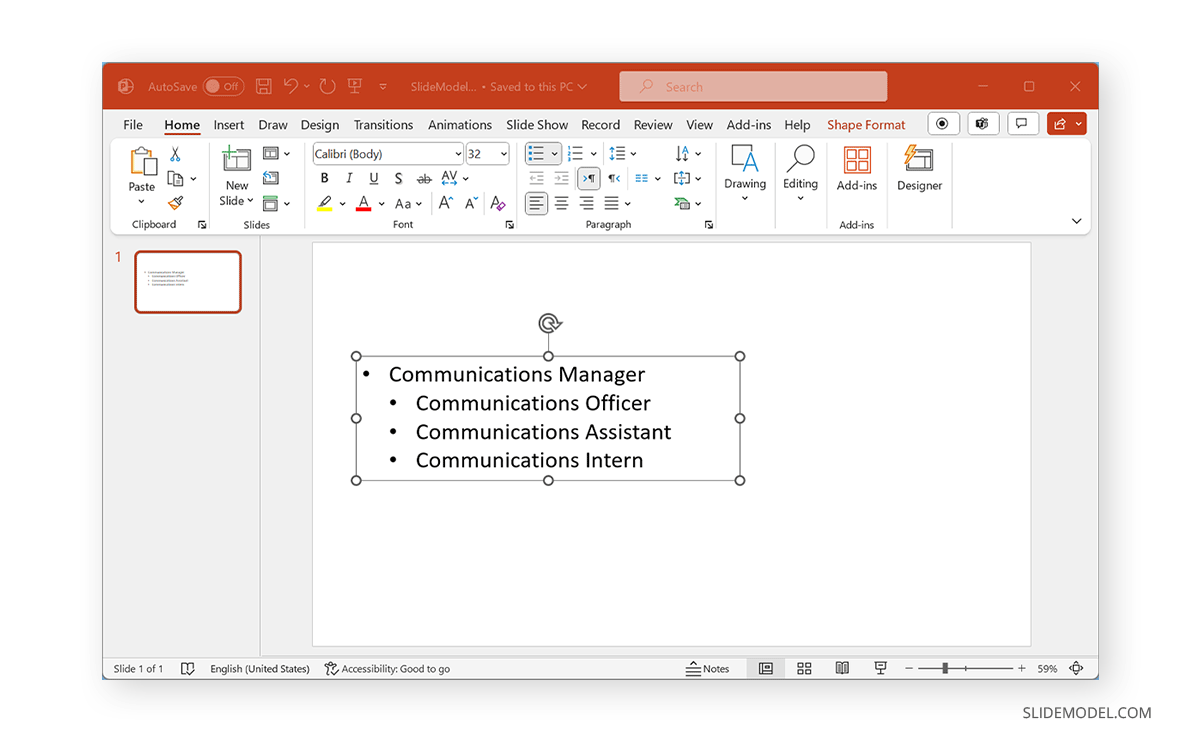
Creating Different Types of Sub-bullets
Using any of the methods mentioned above, you can create PowerPoint sub bullets by moving lines of text according to need.
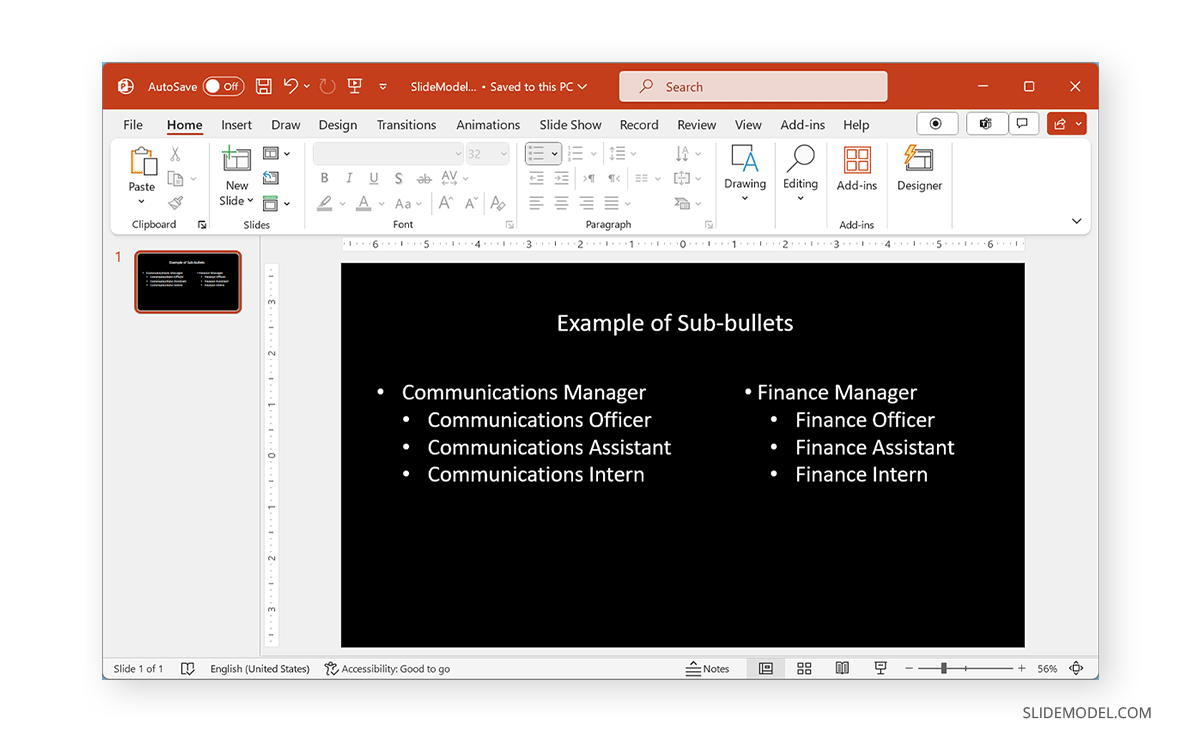
You can create different types of sub-bullets by placing one or more lines of text according to a set hierarchy.
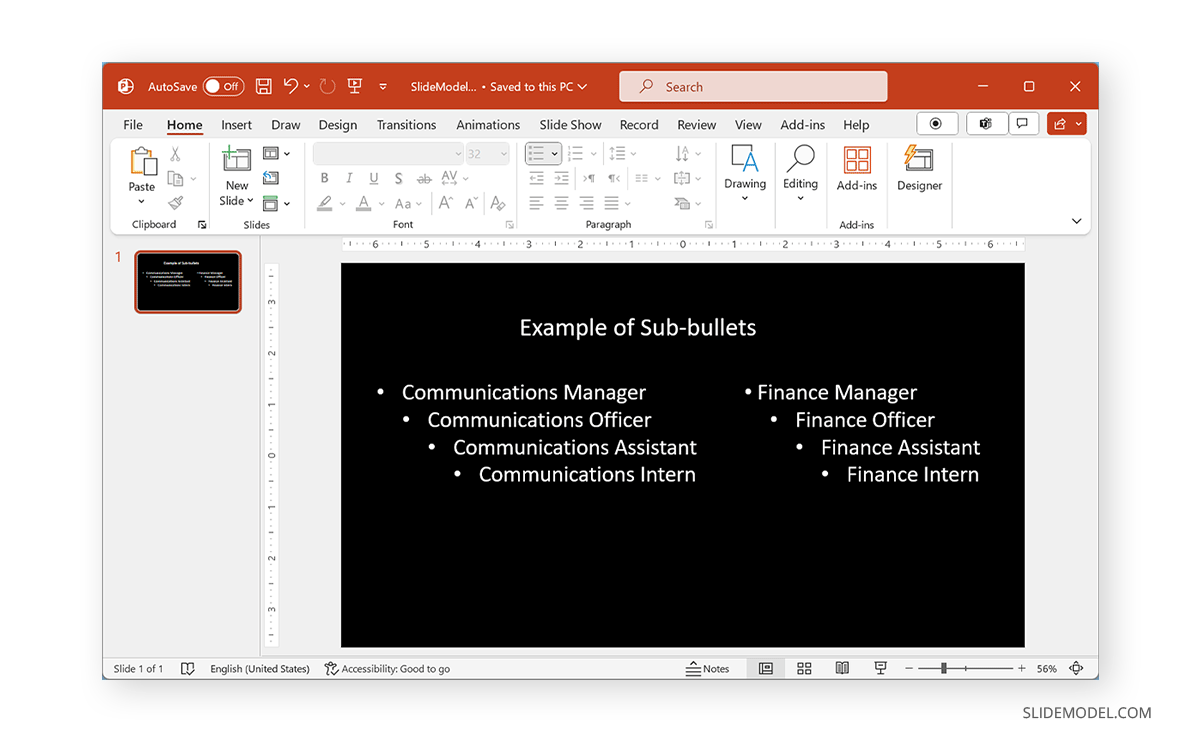
How to Change Sub-bullets to a Different Bullet Style
Select the text from the list and change a different style via the Bullets menu to change a bullet to a different style.
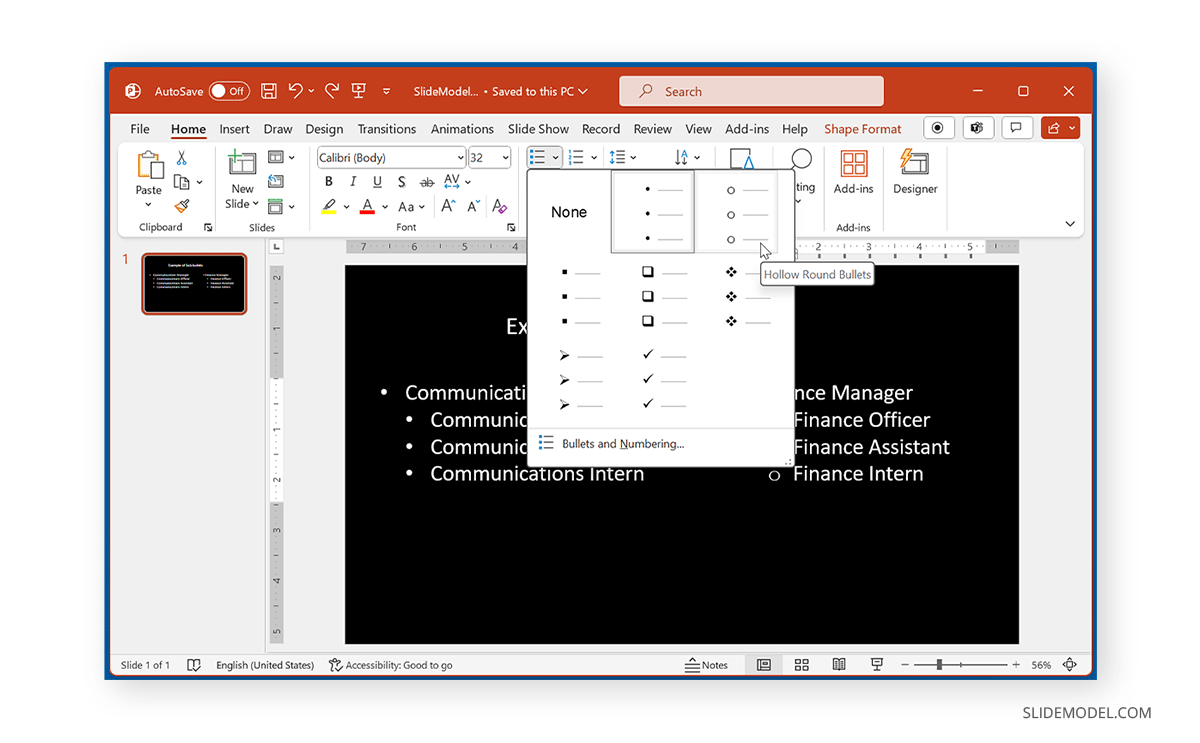
The example below shows hollow round sub-bullets beneath filled round bullets.
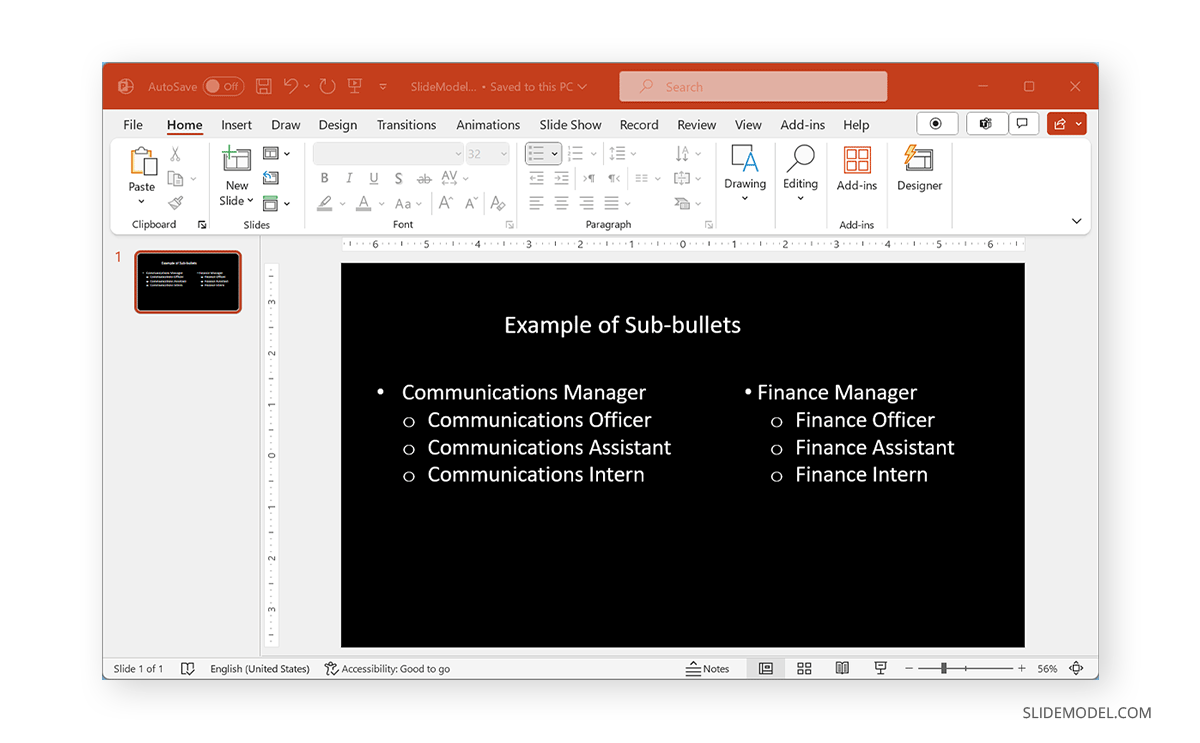
How to Add Sub-bullets in PowerPoint using Custom Styles
There are multiple ways to list things in PowerPoint, we have compliled a list of possible creative ideas and alternatives to bullet lists in PowerPoint in a separate article. But here we will show you how to customize the bullet lists by using different symbols or images instead.
How to Create Sub-bullets using Symbols
Sub-bullets can be changed to symbols by customizing the bullet types. To do this, expand the Bullets menu and go to Bullets and Numbering.
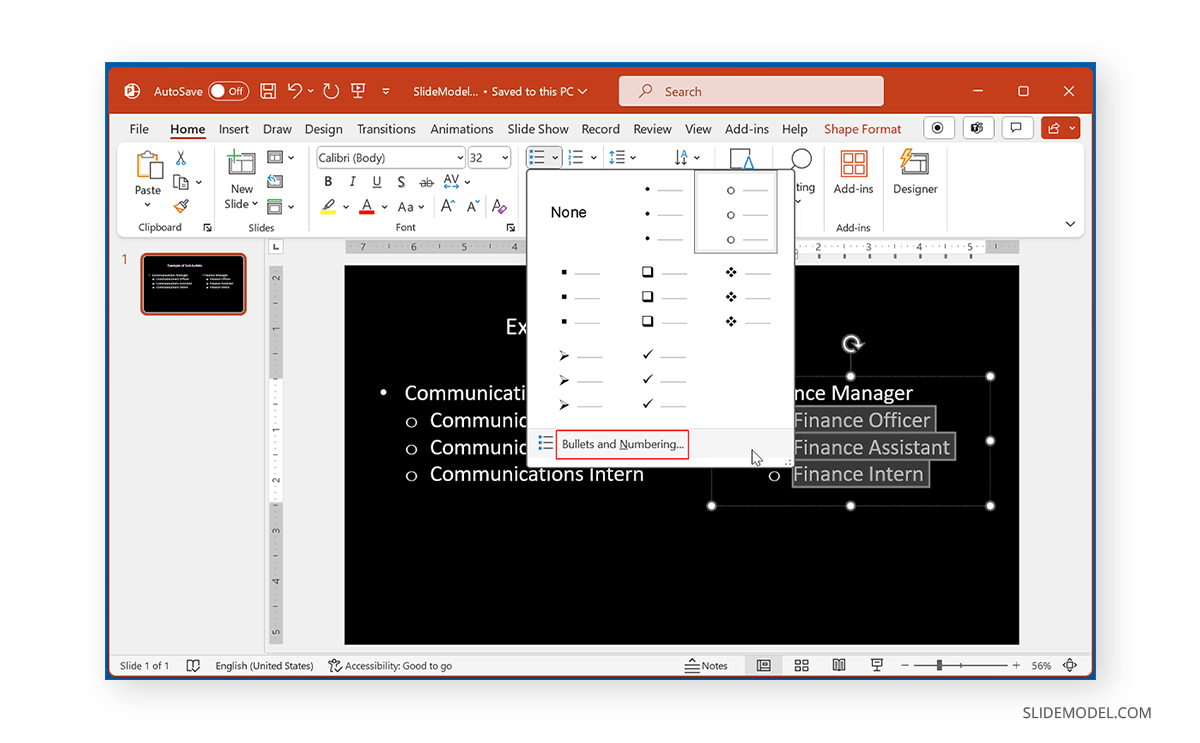
Click Customize from the Bullets and Numbering dialog box to select a symbol as a bullet type.
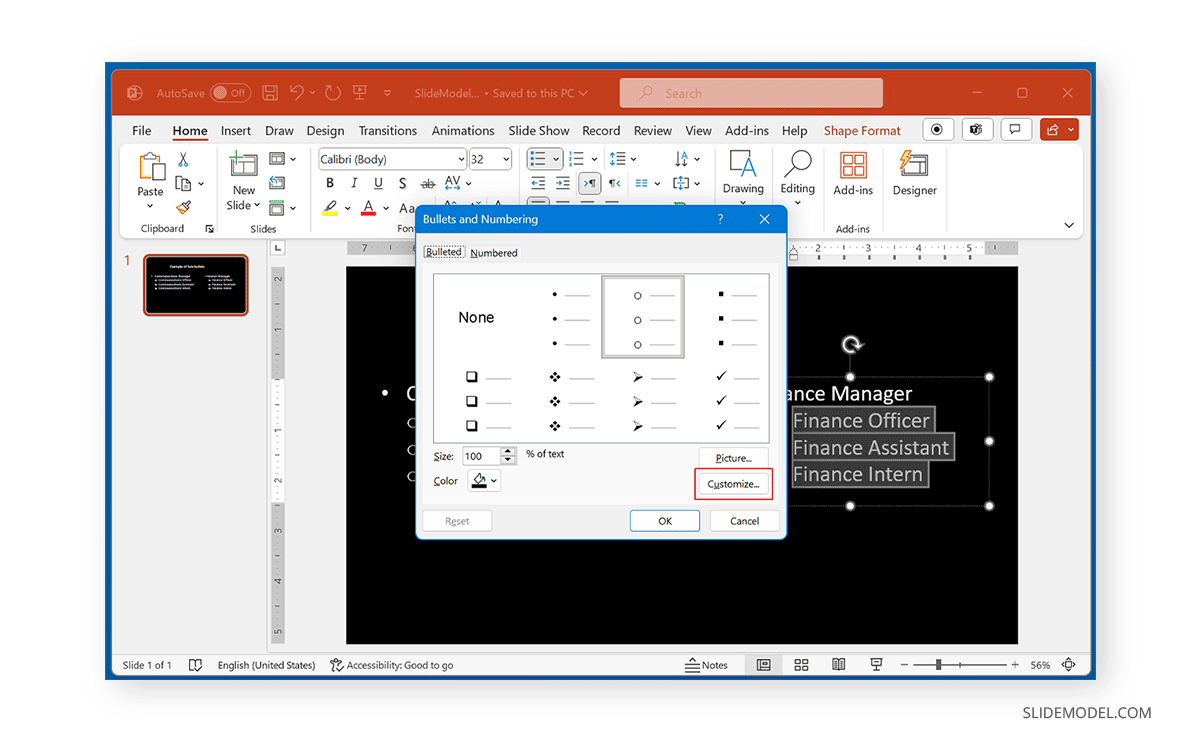
You can select a symbol from the vast array of options in PowerPoint to convert it as a bullet or sub-bullet to create your lists.
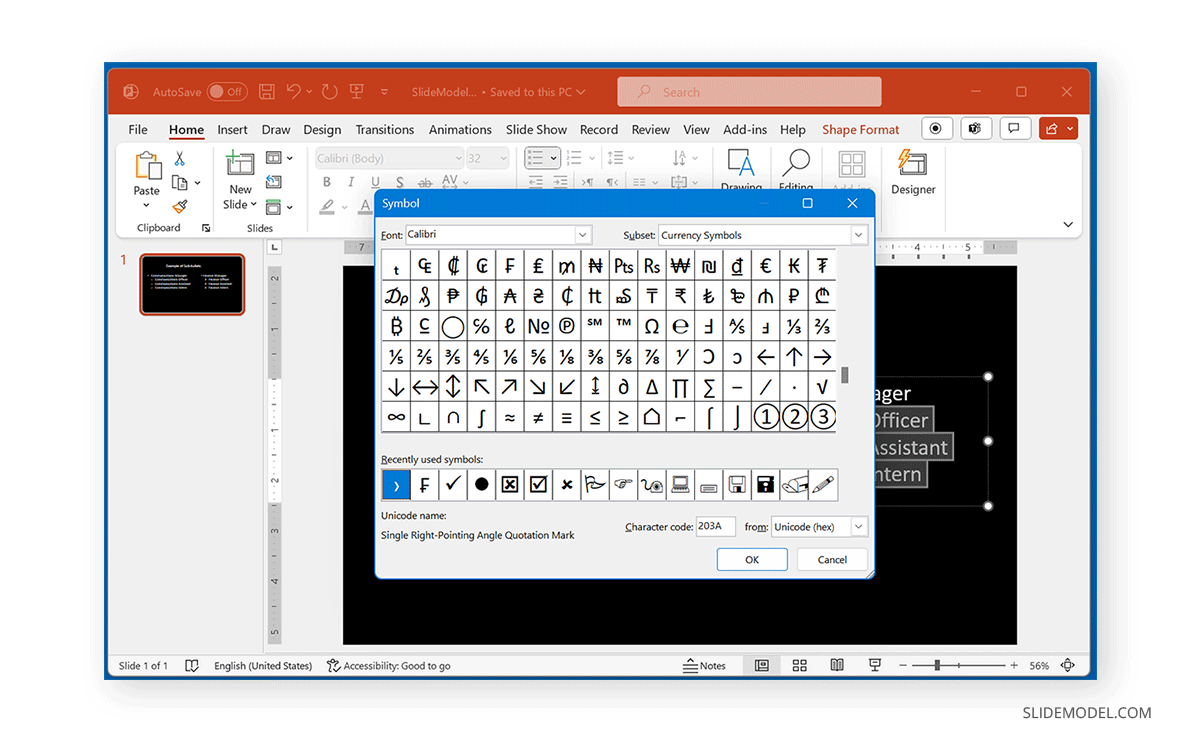
In the example below, we used a single right-pointing angle quotation mark as a sub-bullet. You can use any type of symbol to suit your needs. This can also be an excellent method to convert bullets to visual aids, such as using a currency symbol, such as a $ sign, to discuss finance-related points or a technology-themed symbol for a technology-related presentation.
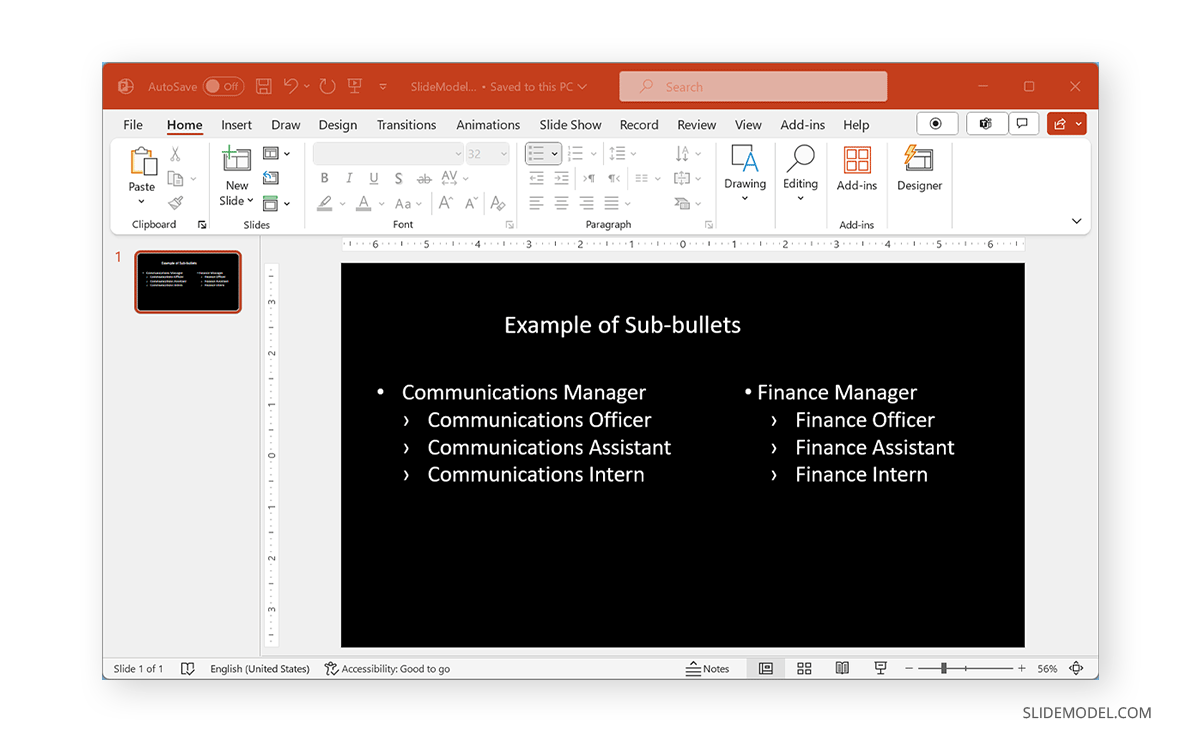
How to Create Sub-bullets Using Images
Like symbols, you can also use bullets or sub-bullets created from images. In such a case, you can convert any image into a bullet or sub-bullet to make your lists enjoyable. To do this, expand the Bullets menu and select the Bullets and Numbering option from the menu.
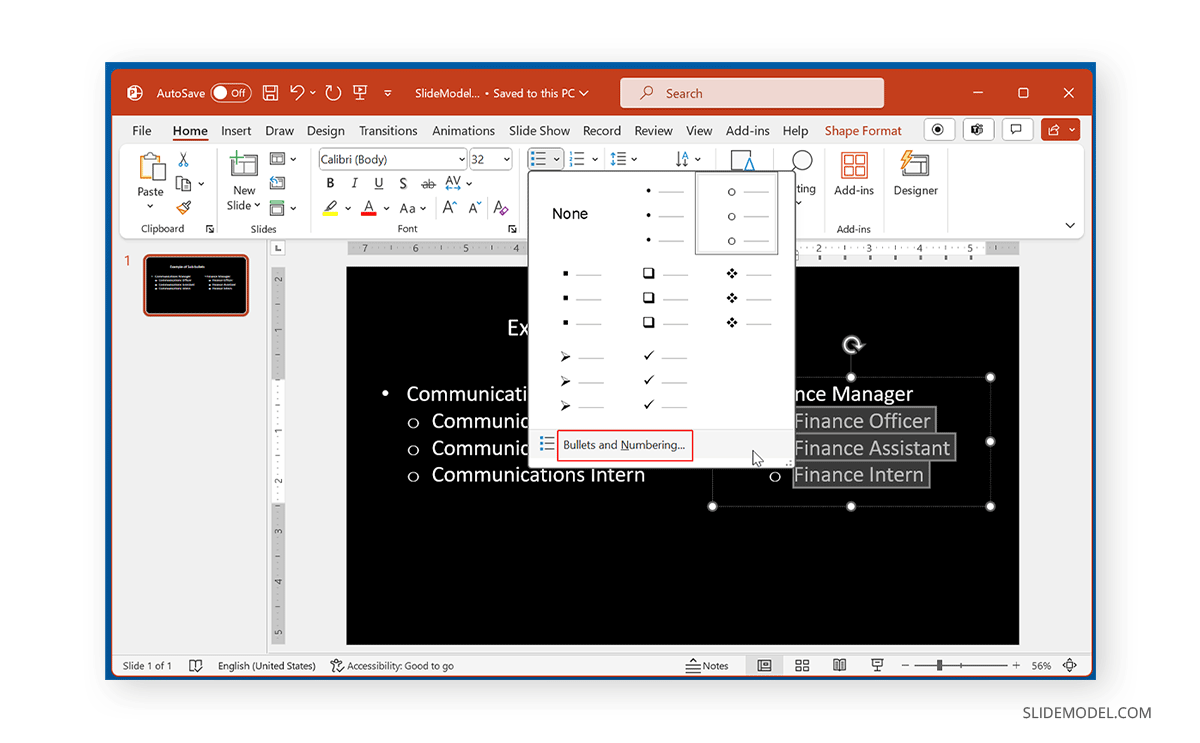
From the dialog box that appears, select Picture to open the image options for creating bullets and sub-bullets.
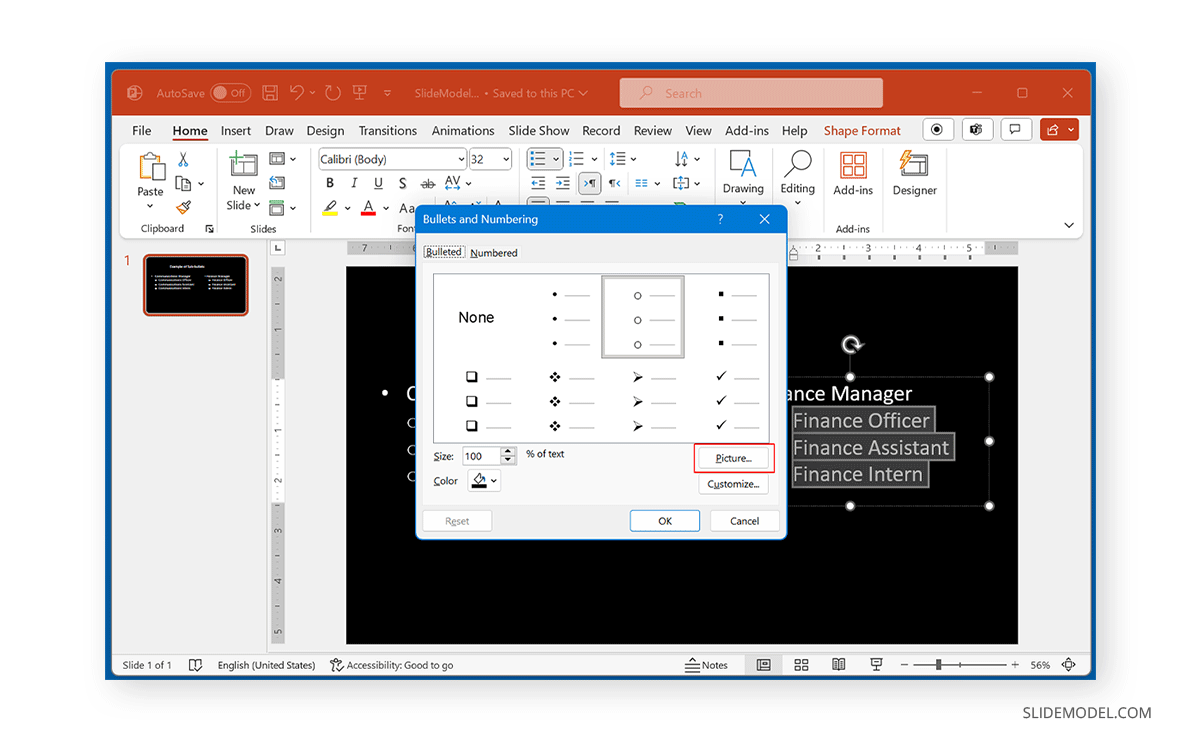
You can select an image from your device, stock images, online pictures from Bing, Flickr, OneDrive, or icons in PowerPoint to find and choose a picture.
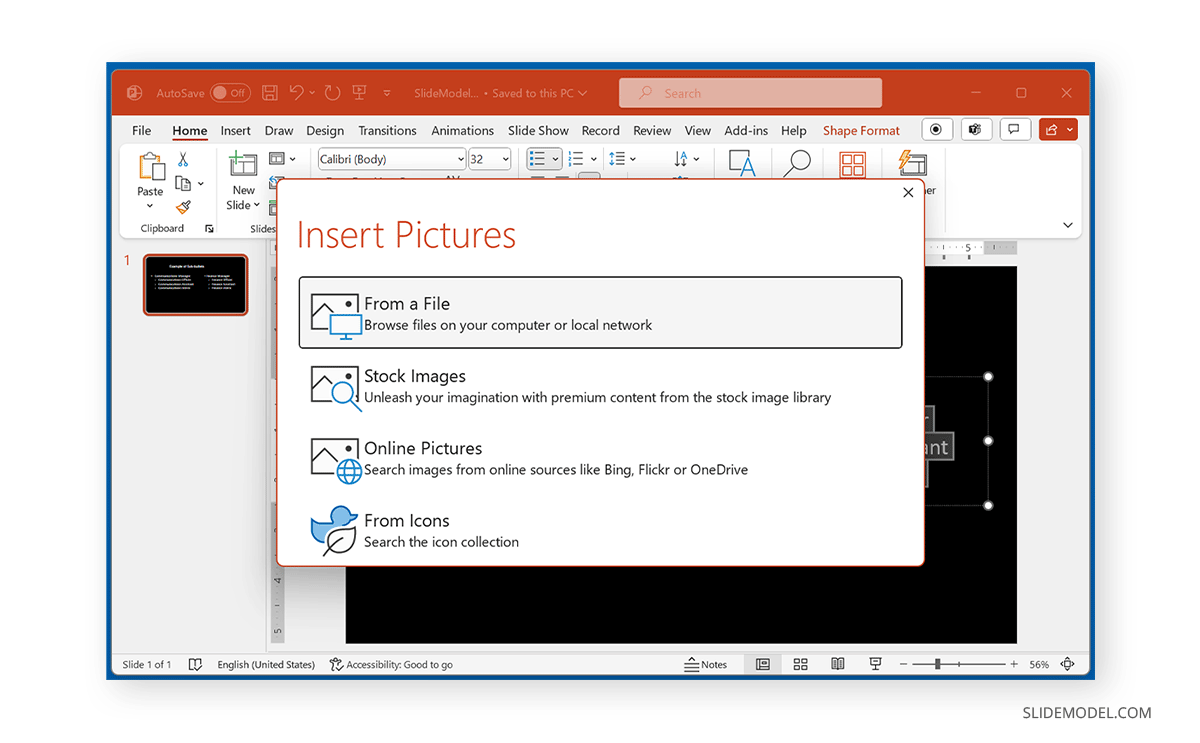
In the example below, we used images as sub-bullets for both lists.
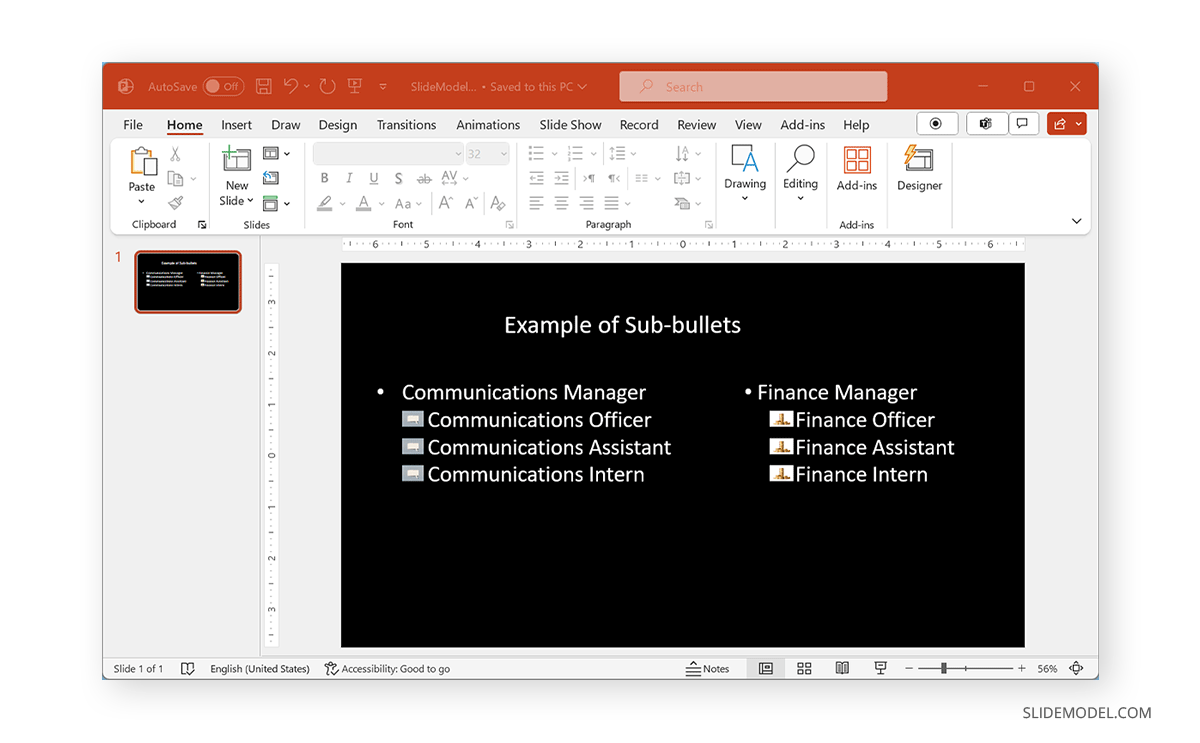
Final Words
Sub-bullets in PowerPoint are important to segregate information in presentation slides. Besides standard bullets, you can use symbols and pictures as sub-bullets to make your slide designs eye-catching and easy to follow. Sub-bullets can be moved using an indent. Furthermore, bullets and sub-bullets can be customized from the Bullets menu in PowerPoint using symbols or pictures.


